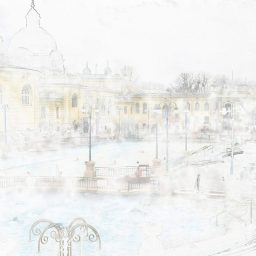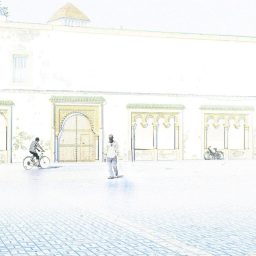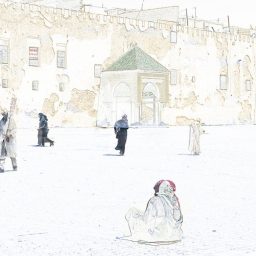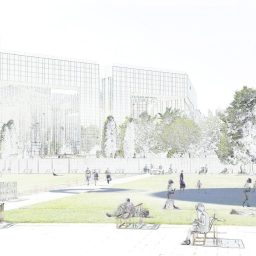The theme of the exhibition is photographing our recollections, what remains imprinted in our minds after a long time about places, people and particular moments of our lives. In our recollections, our vision loses the overall picture, that is the exact details. Only a few specific details remain, while all the rest fades, it becomes white ... vague ... acquiring a hazy glow.
Time warps and changes reality, while our memory emphasizes certain details and hides others. As time goes by, reality loses its objectivity. It actually no longer exists and an image becomes the result of a subjective experience: an imagined space.
Time and memory work in sync to create the impression that the viewer will retain of what he has experienced.
Created with the aim of portraying reality objectively and constituting a faithful record, the exhibition “Dissolvenze in Bianco” ["Fading to White"] showcases photos that strive to highlight what has become a recollection, or perhaps does not even exist, or remains imprinted not on the photographic medium but in the minds of those who have seen something and have then photographed it at a particular point in time.
Through digital processing, the prevailing white colour prominently reveals this transition: from reality to vision.
In the imagined space, some elements are firmly rooted, in an eternal pose, while others are moving "perpetually".
“Dissolvenze in Bianco” ["Fading to White"] is the latest in a series of artistic showings by Marcella Persichetti that form part her research and investigation on the theme and the effects of time.
Marcella Persichetti began photographing in the early 90s, focusing on black and white photography and concentrating her research on topics that depict urban and architectural contexts, especially in Rome, with particular emphasis on the relationship between the past and present, in all its multifaceted aspects.
The exhibition “Ritratti Manifesti_Language of walls” (2005), ["Portrait Posters_Language walls" (2005)], featured analogous black and white photographs, drawing its inspiration from random visual compositions formed by the continuous overlapping and 'tearing', layer upon layer, of posters affixed on the walls of cities.
The exhibitions “Le Dimensioni del Tempo” (2006) ["The Dimensions of Time" (2006)] and “Roma racconta il suo Tempo” (2008) ["Rome narrates its Time" (2008)], presented similar black and white photographs, investigating the coexistence between ancient and contemporary elements in Rome, a city where the connection between past and present is part of the daily lives of its inhabitants. While perceiving this time difference, that is between the disappearance of a certain thing and the present time, we can make up for this time, as it can be recovered by means of an image portraying the fleeting nature of the present time and the multiplicity of the past.
Events at Rome Art Week
2017
Free access
Free access







